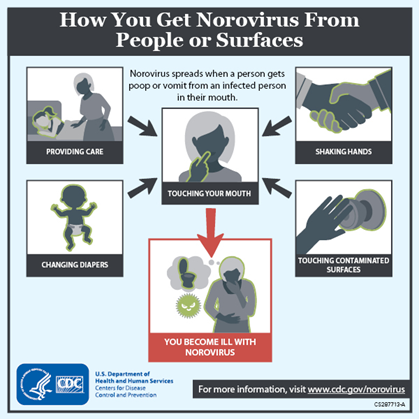

Context
At least two cases of norovirus have been found in Thiruvananthapuram among lower primary school students.
About
Norovirus:
- Norovirus is a highly contagious virus that is also sometimes referred to as the ‘stomach flu’ or the ‘winter vomiting bug’.
- It can be transmitted through contaminated food, water, and surfaces.
- The primary route is oral-faecal.
- It is similar to diarrhoea-inducing rotavirus and infects people across age groups.
- Disease outbreaks typically occur aboard cruise ships, in nursing homes, dormitories, and other closed spaces.
- According to the WHO, emerging evidence suggests that “norovirus infection is associated with intestinal inflammation, malnutrition and may cause long-term morbidity”.
- An estimated 685 million cases of norovirus are seen annually, including 200 million cases amongst children under 5.
- Norovirus, an RNA virus of the family Caliciviridae, is a human enteric pathogen that causes substantial morbidity across both health care and community settings.
Norovirus symptoms
- Diarrhoea, vomiting, nausea, and stomach discomfort are the most common norovirus symptoms. Fever, headaches, and body aches are possible side effects.
Norovirus transmission prevention
- One may get infected multiple times as the virus has different strains.
- Norovirus is resistant to many disinfectants and can withstand heat up to 60°C.
- Therefore, merely steaming food or chlorinating water does not kill the virus.
- The virus can also survive many common hand sanitisers.
- Protect yourself and others from norovirus by washing your hands often, rinsing fruits and vegetables, cooking shellfish thoroughly, staying at home when sick and for two days after symptoms stop and avoid preparing food for others when sick and for two days after symptoms stop.
Treatment:
- The disease is self-limiting. The infection normally lasts only two or three days and one can ride it out with sufficient rest and hydration.
- It is important to maintain hydration in the acute phase. In extreme cases, patients have to be administered rehydration fluids intravenously.
- Diagnosis is done by real-time reverse transcription-polymerase chain reaction. No vaccines are available for the disease.



